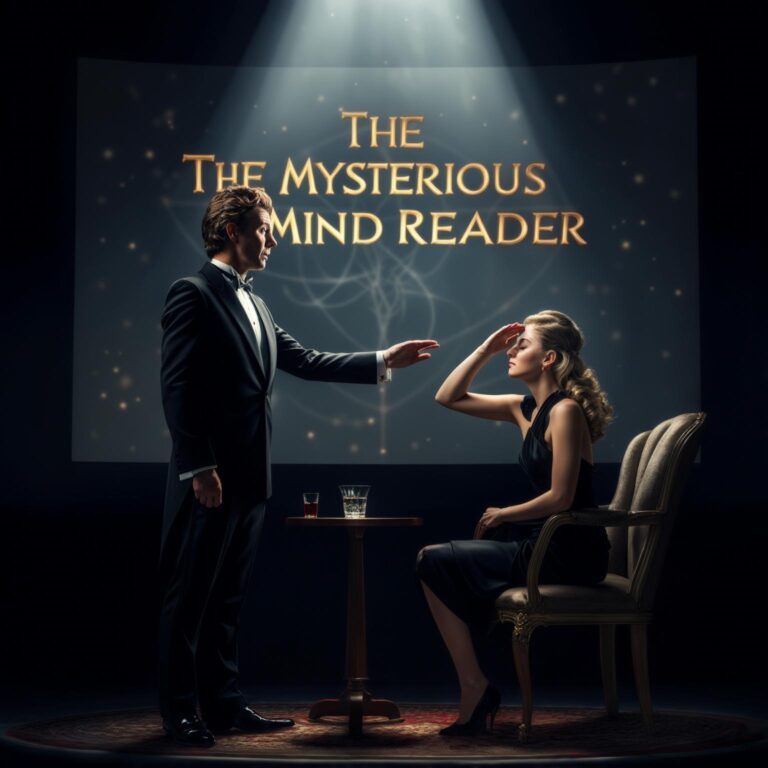Mentalism is a performing art in which its practitioners, known as mentalists, seem to demonstrate highly developed mental or intuitive abilities. Performances may appear to include hypnosis, telepathy, clairvoyance, divination, precognition, psychokinesis, mediumship, mind control, feats of memory, deduction, and quick mathematics. Mentalists perform a theatrical act that includes effects that may appear to employ psychic or supernatural forces, but that are actually achieved by ordinary means of conjuring, natural human abilities (i.e. Reading body language, refined intuition, subliminal communication, emotional intelligence) and a deep understanding of key principles of human psychology or other behavioral sciences.
Mentalists are people who have an impressive talent for reading minds. It’s so impressive they use it on stage, earning a living as “mental magicians” who entertain the audience with performances that include impressive psychic demonstrations. Becoming a professional mentalist is both preparation and improvisation on the spot. Performing in front of large crowds and performing tricks requires the innate ability to think on your feet and spontaneously.
Another key step in the process of becoming a mentalist is mastering the art of improvisation. To be more skilled at this, perform countless times alone or in front of the mirror or among friends or small audiences, if possible. The underlying fact is to put yourself in a bind, purposely create difficult situations or slips that you hope may occur on the day of. Mentalism isn’t magic tricks with mental themes; that’s a style of magic called mental magic.
On the other hand, mentalism is performance art. The artist (mentalist) entertains his audience with an act based on fascinating mind-related skills. A “couch” mentalist who doesn’t act for real people is not a mentalist. On the other hand, money and professionalism are not the main factor.
Both the social artist and the professional can be mentalists, as long as they take mentalism seriously. First, learn the art of magic To perform mentalism you must have knowledge of magic principles. First, you need to learn magic, then you’ll learn mental magic and, in the end, pure mentalism. Mentalism often applies tricks and techniques used in magic.
You don’t need to be an expert magician to become a professional mentalist. Knowledge of Important Magical Principles Prepares You for Mentalism. Learning mentalism is a lot like learning to play the guitar. In fact, the “basic” techniques you’re about to learn are the same methods that the best professional mentalists use every day.
They are the basis of almost every possible effect on mentalism. Mentalism is an art of acting in which its performers, sometimes called mentalists, seem to show highly developed mental or subconscious abilities. Another classic effect of mentalism is the idea that the mentalist can use the power of his mind to move or levitate objects or even bend metal. Learn math tricks, memory techniques, mind tricks The mentalist should always sound intelligent and the quickest way to prove it is to perform mental calculations correctly and quickly.
Although mentalism is sometimes described as a kind of magic, many people actually believe in the abilities of mentalists. If you’re not Derren and you try it in your mentalism act, your audience will see your mentalism as another clever trick. Present yourself as a mentalist and not as a magician Presentation is the most complex part of mentalism. While magic and mentalism may seem very similar, many purists would argue that mentalism is actually not magic at all.
Mentalists hold this book in similar relation to 13 Steps as one of the reference books for beginners who want to learn incredible mental magic. I performed and watched several mentalism programs and following things were common in all the good mentalism programs I found. It’s much harder to learn how to become a mentalist without asking other mentalists for advice. Mentalism is classified as a branch under magic and mentalists use various skills to surprise the audience.
Okay, these are definitely great acts to be part of a mentalism program, but these acts or similar acts don’t make a good mentalism show.


